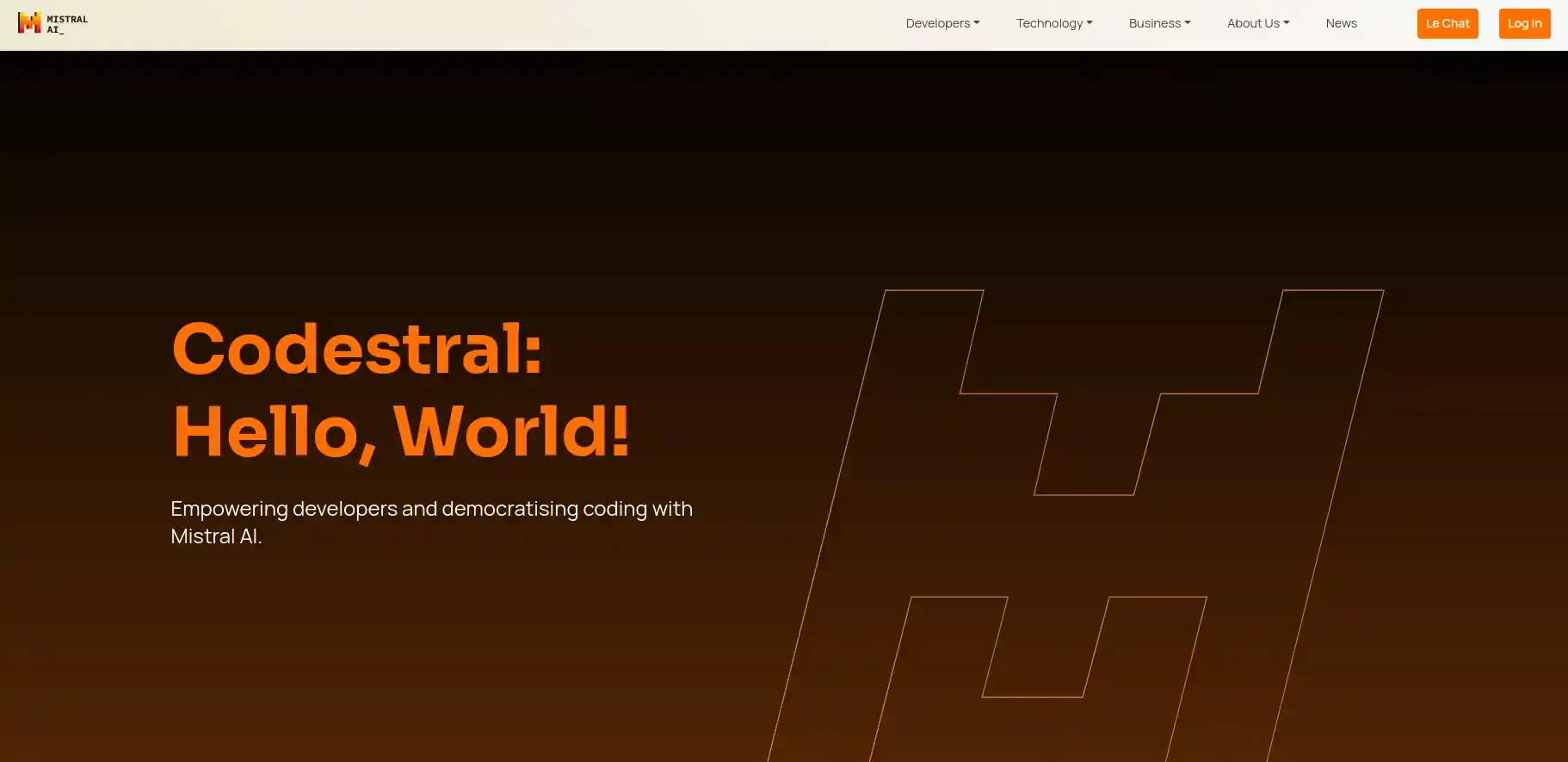Table of Contents
What is Mistral’s Codestral?
Mistral, a well-funded French AI startup backed by Microsoft, has entered the generative AI for coding scene with its first model, Codestral. Designed to aid developers in writing and interacting with code, it boasts an impressive range. It can understand and process over 80 programming languages, including popular choices like Python, Java, C++, and JavaScript.

This translates to functionalities like completing coding functions, writing unit tests to ensure code quality, and filling in missing parts of code snippets. Additionally, Codestral can answer questions about existing codebases in plain English, potentially streamlining the development process.
Understanding Codestral: Potential and Limitations
While Mistral describes Codestral as “open,” the accessibility picture is murkier. The licensing terms restrict the use of Codestral and its outputs for commercial purposes. Even within the development realm, the license disallows “any internal usage by employees in the context of the company’s business activities.” This raises questions about the training data used for Codestral. There’s a possibility that copyrighted content might have been involved, though Mistral hasn’t confirmed this speculation.
Another potential hurdle is the computational power required to run Codestral. With a whopping 22 billion parameters, the model demands a powerful computer. While Mistral claims superiority over competitors based on benchmarks (known for their limitations), the performance gains might not be significant.
How it Works
Under the hood, it leverages the power of generative AI, a subfield of artificial intelligence focused on creating new data. In simpler terms, the model is trained on a massive dataset of code examples across various programming languages. This training allows it to identify patterns, understand code structure, and predict the most likely continuation or completion of a code snippet.
Here’s a breakdown of Codestral’s functionalities:
- Code Completion: Developers can provide Codestral with partial code and the model will attempt to fill in the blanks based on its understanding of the code’s purpose and surrounding context.
- Unit Test Generation: Writing unit tests is a crucial step in ensuring code quality. It can analyze existing code and automatically generate unit tests, saving developers time and effort.
- Codebase Q&A: Struggling to understand a specific section of code within a larger project? It can answer questions about the codebase in natural language, improving comprehension and streamlining troubleshooting.
It’s important to remember that Codestral is a tool, not a silver bullet. While it can automate certain tasks and provide valuable insights, human oversight, and expertise remain essential.

Impact on Software Development
The introduction of Codestral adds another layer to the ongoing debate surrounding the role of code-generating AI models in software development. There’s undeniable developer interest in this technology. A 2023 Stack Overflow survey revealed that 44% of developers already use AI tools, with 26% planning to adopt them soon.
However, concerns exist about the potential drawbacks. An analysis by GitClear of millions of code lines committed over recent years suggests that generative AI tools contribute to more errors being introduced into codebases. Security researchers have also voiced worries about these tools amplifying existing bugs and vulnerabilities. Studies like one from Purdue University highlight the issue of inaccuracy, with over half of programming-related responses from OpenAI’s ChatGPT being demonstrably wrong.
Conclusion
Despite the limitations and potential downsides, companies like Mistral are determined to capitalize on the potential of code-generating AI. Mistral has launched a hosted version of Codestral on its conversational AI platform Le Chat, along with a paid API for broader access. Additionally, the company is integrating Codestral with popular app frameworks and developer environments.
It represents a potential step forward in developer assistance tools. However, questions regarding licensing, practicality, and potential for introducing errors remain. Only time will tell if the benefits outweigh the drawbacks, but one thing’s for sure: the debate about the role of AI in software development is only just beginning.